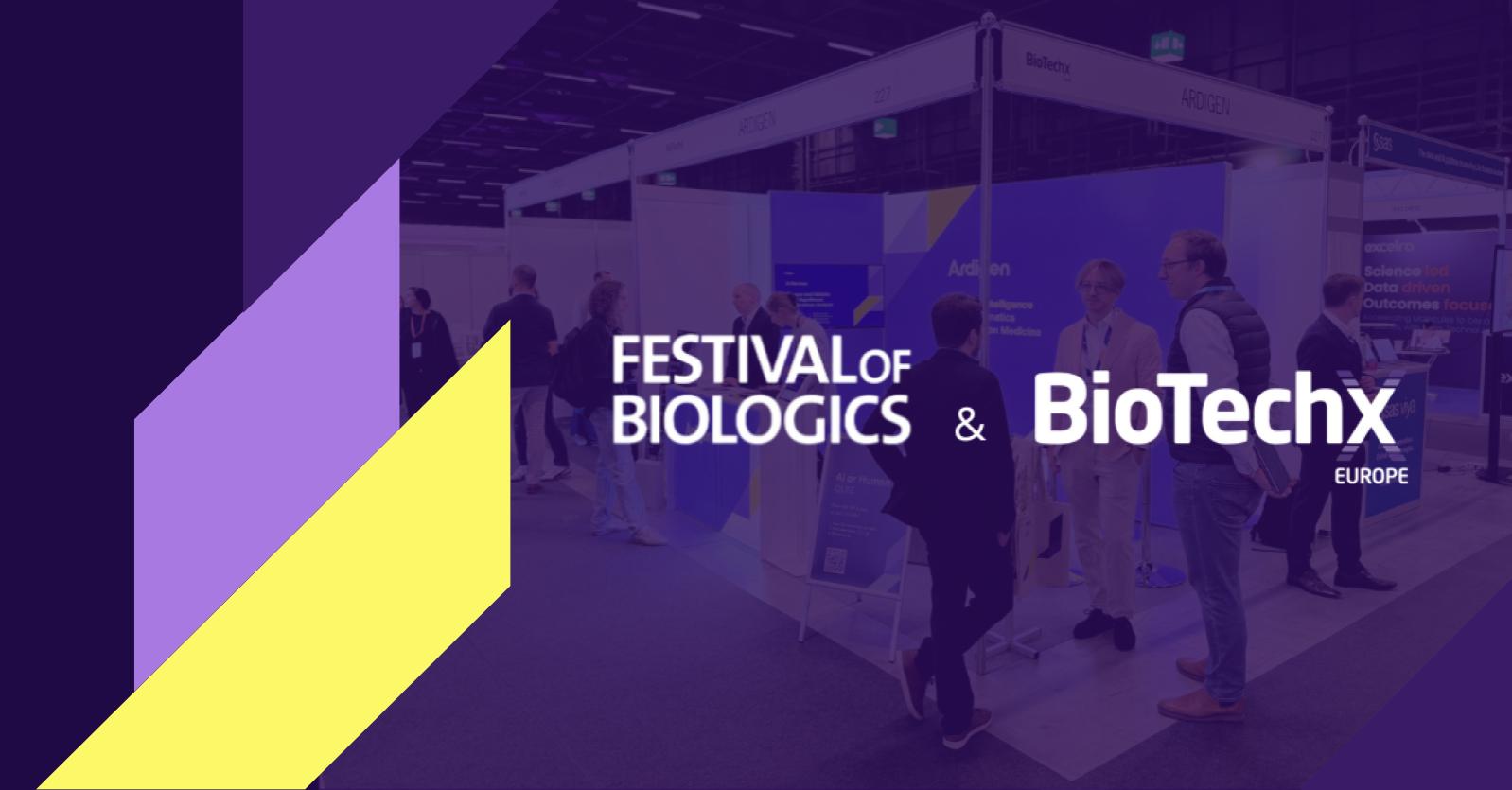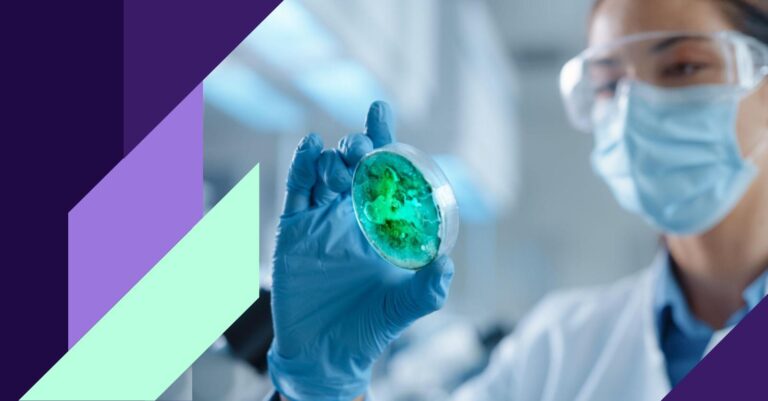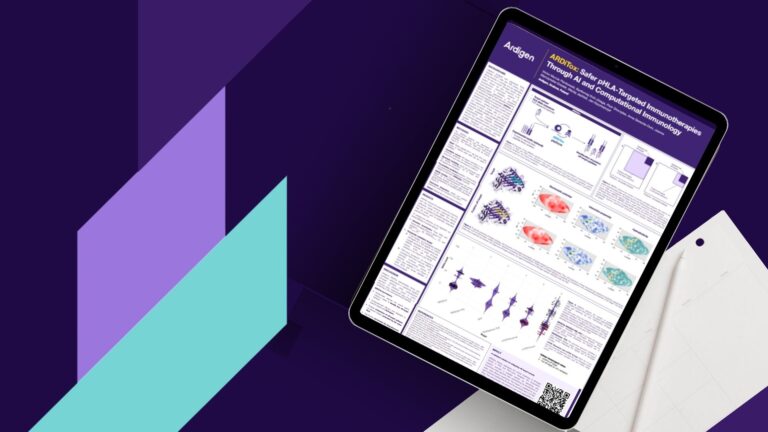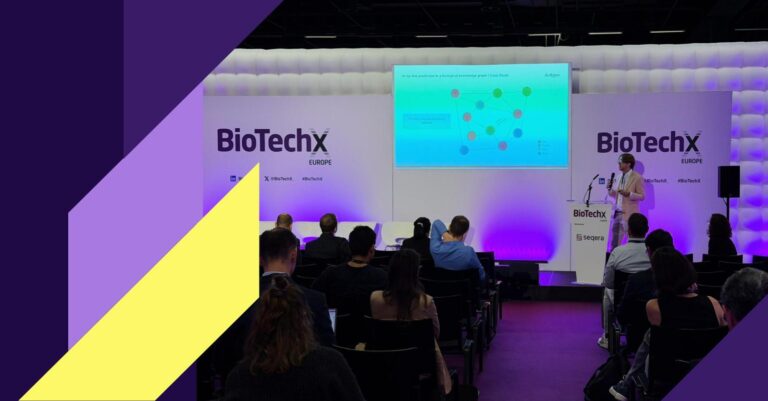This October, two of Europe’s leading conferences – Festival of Biologics and BioTechX Europe – offered a glimpse into the future of drug development, each from a unique angle. One focused on the biology driving new therapies, the other on the data and digital tools shaping how we discover and deliver them.
Here’s what stood out:
Festival of Biologics: Building the next generation of biotherapeutics
Basel | Sept 30 – Oct 2, 2025
The Festival of Biologics brought together industry leaders, researchers, and developers focused on the entire biologics pipeline, from discovery to manufacturing.
Key Themes:
- Beyond monospecifics:
There’s a growing shift toward bispecifics, trispecifics, and Antibody-Drug Conjugates (ADCs). These complex formats are seen as the next wave of precision biologics, enabling more targeted and potent therapeutic action. - Protein engineering as a cornerstone:
Engineering stability and manufacturability into multi-domain biologics is now essential. Several sessions spotlighted rational design techniques and the importance of computational modeling in optimizing these constructs. - AI joins the lab team:
AI-driven tools are rapidly becoming embedded in discovery workflows – from target selection to candidate optimization. The ability to navigate vast design spaces and predict biophysical properties is accelerating early-phase development. - Safety still comes first:
As therapeutic molecules grow more potent and complex, early immunogenicity and toxicity assessments are critical to reduce clinical risk. Discussions highlighted the need for integrated, predictive models to de-risk candidate selection.
BioTechX Europe: The engine room of digital drug discovery
Basel | Oct 6–8, 2025
BioTechX focused on the digital transformation of life sciences: AI, big data, clinical informatics, and omics integration. It’s where algorithms meet biology at scale.
Key Trends:
- LLMs are moving into the lab:
Large Language Models (LLMs) are now being used to extract structured insights from unstructured biomedical literature, assisting in metadata curation, experimental design, and even biomarker pattern detection. - Data harmonization is mission-critical:
Cross-platform data integration, across omics, clinical, and imaging data, is no longer a nice-to-have. Speakers emphasized standardized ontologies and data pipelines as the foundation for scalable AI deployment. - AI for biomarker discovery is evolving:
A key message was the need to go beyond pure signal detection. Instead, platforms are now combining ML with biological context to increase translatability and reduce false positives, especially in precision medicine settings. - Federated learning gaining ground:
With data privacy concerns mounting, federated learning emerged as a practical approach to enable collaborative AI development across institutions, without compromising proprietary datasets. - Patient-centricity and ethics in AI:
Talks addressed regulatory and ethical expectations for AI in the clinic, stressing explainability, auditability, and inclusivity of datasets used to train clinical models.
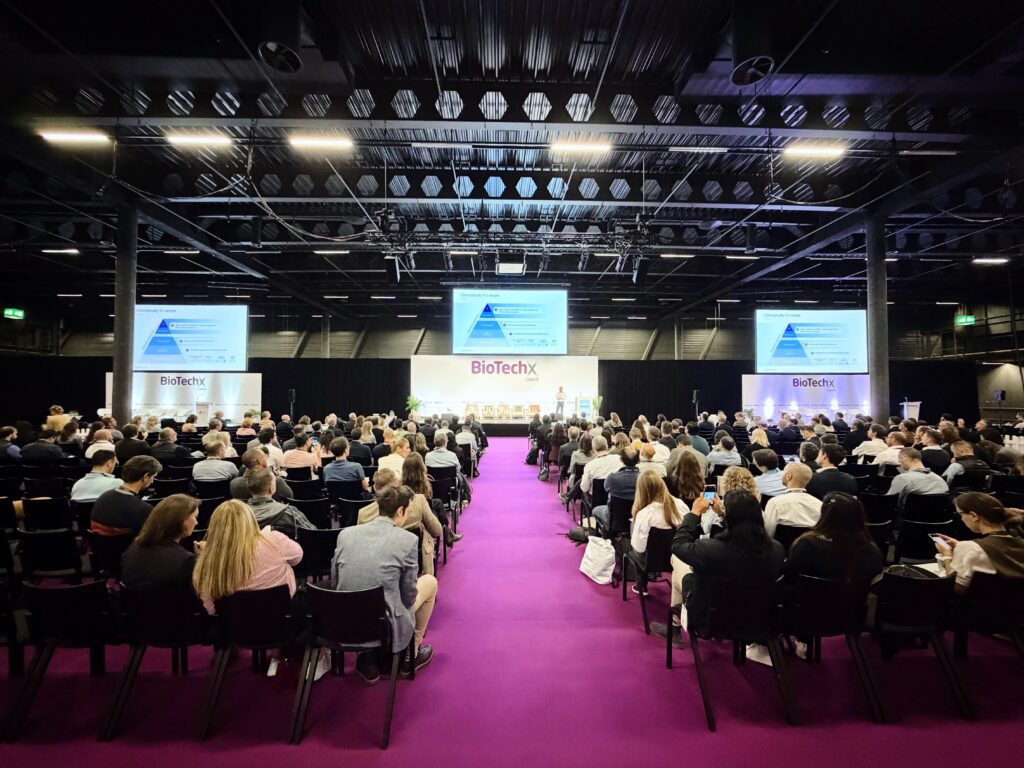
The Big Picture
These two conferences underscore how innovation in biotech is now dual-fueled by biology and data science. From stabilizing trispecific antibodies to training foundation models on multi-omics datasets, the future of drug discovery is no longer siloed.
It’s biology made smarter, and data made actionable.
Let’s Talk
Beyond attending inspiring sessions and discussions, our teams also contributed actively to both conferences — sharing our experience and research through scientific posters and expert talks:
- Safer pHLA-Targeted Immunotherapies Through AI and Computational Immunology
- Reducing Data Curation Time with an LLM-Augmented ETL System: A GEO Case Study
- Can AI Stop the Cost Spiral in Drug Discovery? – talk by Dawid Rymarczyk at BioTechX 2025
- Panel discussion: How innovation is shaping the future of healthcare and life sciences, featuring Dawid Rymarczyk, PhD, alongside experts including Ilya Burkov, Carolina Benjaminsen, PhD (Novo Nordisk), David Talby (John Snow Labs & Pacific AI), and Philippe Marc (Novartis)
These contributions reflected Ardigen’s broad expertise — from AI in immunotherapy safety and data curation to the strategic use of innovation in healthcare — and fostered valuable exchanges with peers across the biotech and pharma communities.
If you missed us in Basel, we’re always up for continuing the conversation, reach out or connect with us on LinkedIn.
